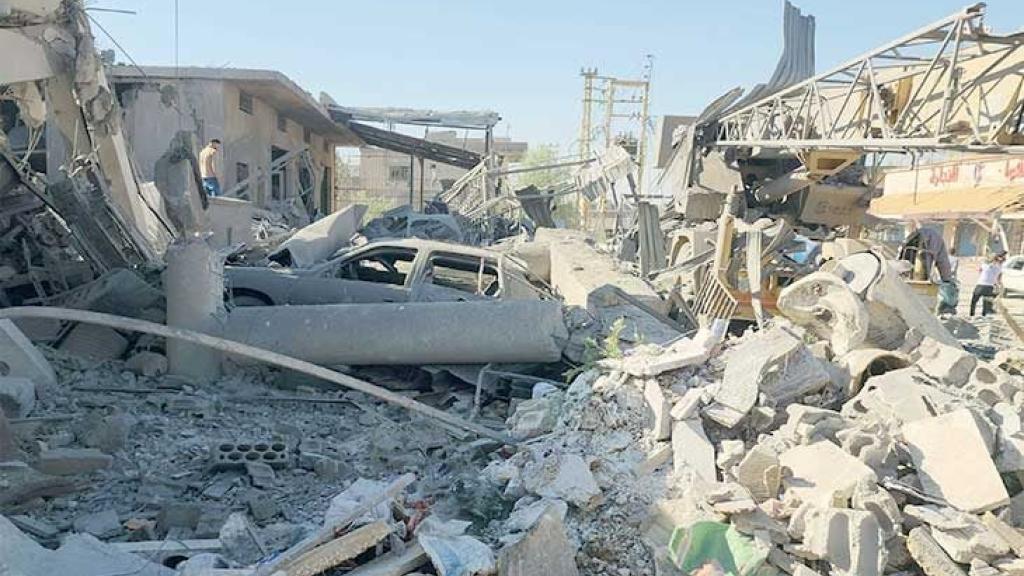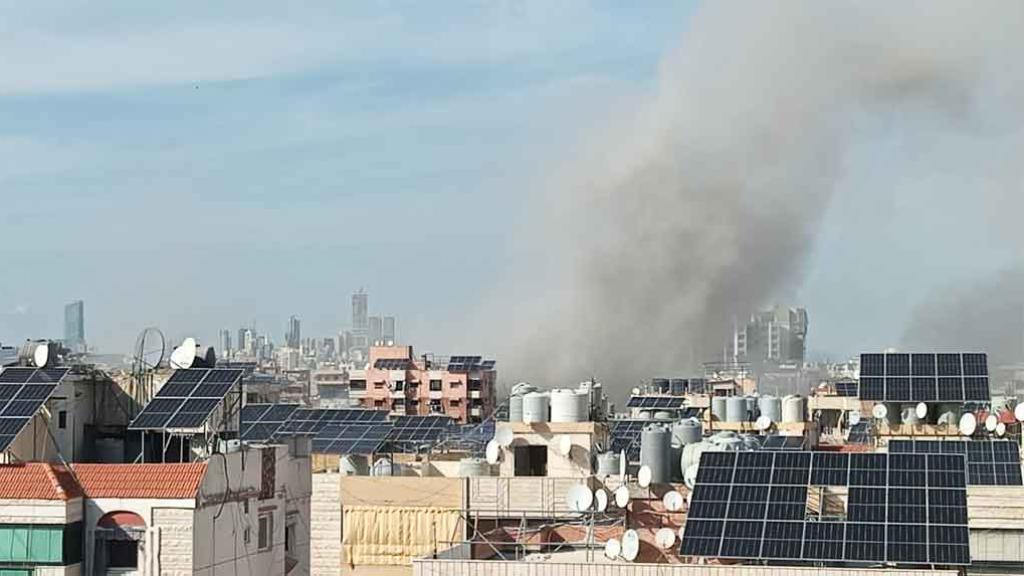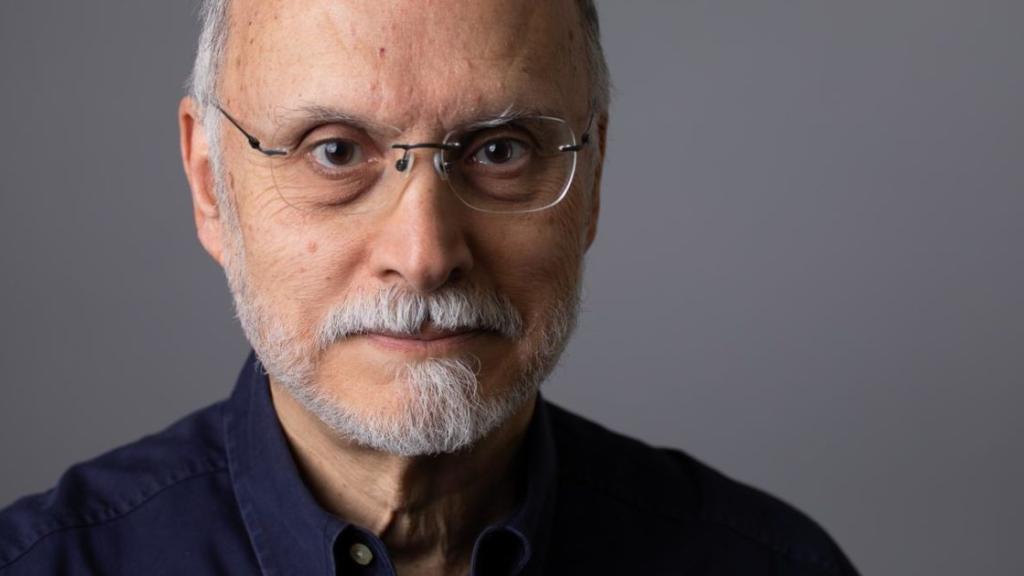Boris Kagarlitsky: China and Russia in the modern world-system — A dual challenge
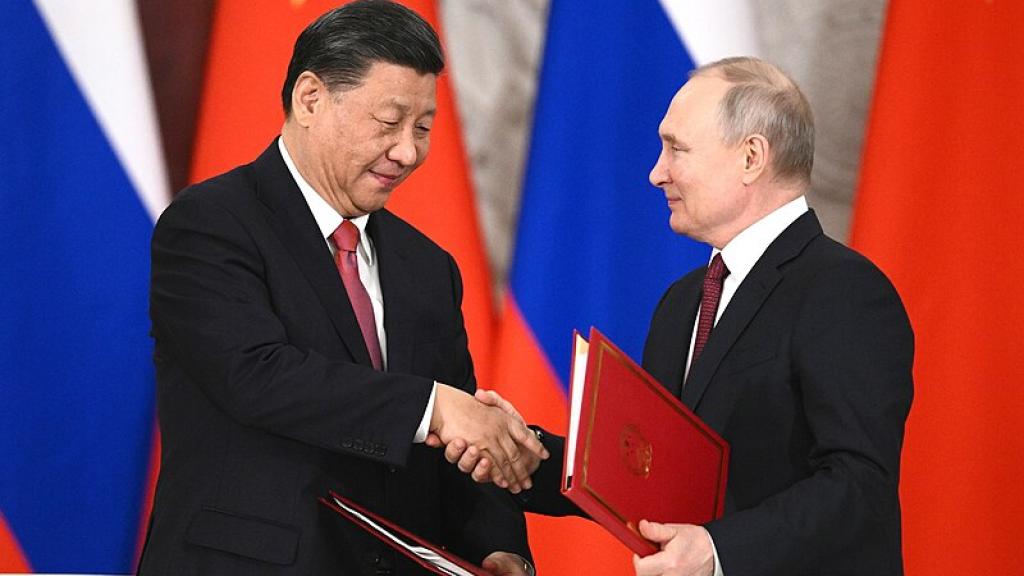
[Editor's note: Marxist sociologist Boris Kagarlitsky is currently in a Russian prison for speaking out against the full-scale invasion of Ukraine. In support of his release, the Boris Kagarlitsky International Solidarity Campaign is hosting an online conference on October 8, “Boris Kagarlitsky and the challenges of the left today”. LINKS International Journal of Socialist Renewal is proud to be a co-sponsor of this conference and encourages all readers to read the program and register for the conference today.]
The following article is the result of six letters sent by Boris Kagarlitsky from Russian prison to his co-author Dmitry Pozhidaev, who has then, with Kagarlitsky's permission, compiled, translated and edited them into an article.
Debates over whether Russia’s current decoupling from the West and pivot to China constitutes a real delinking from the imperialist centre, as conceptualised by Samir Amin (Amin, 2017), have intensified following the conflict in Ukraine and imposition of unprecedented Western sanctions against Russia (Kolyandr, 2024). The official Russian narrative frames this pivot as a process of “liberation from the Western yolk” (Karaganov, 2023), promoting a mutually beneficial partnership based on common values, mutual respect and non-interference — in contrast to the political and economic dependency experienced with the West. However, there is no consensus among political scientists and economists regarding the consequences of this development. Several scholars, including my co-author Dmitry Pozhidaev (2024), argue that Russia’s decoupling presents an opportunity for potential delinking from the capitalist core (though I fear Pozhidaev may be overly optimistic about this). In contrast, Milanovic (2022), Torkunov and Streltsov (2023), Komolov (2023), and Kluge (2024) highlight various risks associated with Russia’s growing dependency on China and the threat of direct exploitation — ranging from monetary and financial, to technological and political.
We have started a new research project with Pozhidaev to analyse if Russia’s reorientation toward China signifies a genuine move towards independent, self-centred development or simply a transfer of dependencies to a new global power. Following Amin (2017), we conceptualise delinking as having two interlinked components: decoupling and self-centred development. Delinking is not merely isolation (decoupling), but the reorganisation of economic and social systems to serve internal needs and priorities rather than the demands of global capital (self-centred development). As Katz (2023) argues, a mere conflict with the capitalist centre does not mean true delinking.
In this context, it is essential to develop a comprehensive understanding of China’s role in the ongoing development of the world-system, its potential as a new global capitalist centre, and the prospects for its relations with Russia. Understanding China’s position is complex, particularly as its current trajectory challenges established frameworks of world-systems analysis. As China evolves, it has emerged not only into a significant player within the global economy but as a potential catalyst for the disintegration of existing structures. This analysis explores the relationship between China’s ruling elite, its conservative developmental strategy, and the implications for international dynamics.
The conservative nature of China’s development
The difficulty in understanding China’s place in the modern world-system is that its current development does not fit into established frameworks of world-systems analysis (Wallerstein, 1974). Looking ahead, we can surmise that China is objectively a factor in the disintegration of the world-system, in accordance with the prophecies of the late Wallerstein (2004). One notable outcome of discussions among representatives of the world-systems school is that none of their proposed formulations appear sufficiently convincing.
China’s problem lies in the fact that the current ruling elite of the Celestial Empire is neither attempting to separate from the system nor to submit to it, nor are they striving to take a dominant position within it (that is, become a new hegemon). The essence of the modern Chinese bourgeoisie and bureaucracy’s attitude toward the outside world is to view it as merely a resource (or a collection of resources) to be utilised for China’s development. This development is fundamentally conservative; it is focused on the need to incorporate new resources and technologies into the economy, but for the exclusive purpose of maintaining the status quo — or, if you will, to preserve the harmony that was finally achieved at least 20 years ago (Huang, 2019).
The global role of Chinese capital appears to be purely reactionary. While China does not seek to control the development of peripheral countries, it shows little interest in these nations and their territories, focusing instead on the resources it can extract — ideally at minimal cost. A notable example is that of water resources in Kyrgyzstan and other Central Asian countries, where rivers originate in Chinese territory. China is effectively diverting water, which threatens to exacerbate the shallowing and potential death of Issyk-Kul Lake, echoing the fate of the Aral Sea (Katz, 2018). Moreover, the Chinese government is often unyielding in discussions with its neighbours, reflecting a pattern of predatory management observed in other regions, particularly Africa (see Bond’s discussion of BRICS as an “anti-imperialist fantasy and sub-imperialist reality”) (Bond, 2015).
These predatory practices not only exploit peripheral nations but serve to reinforce China’s internal economic strategies, which prioritise rapid industrialisation and resource accumulation over sustainable development. This focus can lead to short-term gains but may ultimately result in long-term instability, both domestically and internationally.
China's pragmatic engagement with the developing world
Since nothing is required from the outside world beyond resources, there is no aspiration for hegemony or domination. This is particularly evident in China’s policy toward Africa. In Africa, Chinese officials and business owners seek specific resources in each country they enter. They negotiate the acquisition of the necessary resource, often in predatory ways, but are entirely indifferent to the structure of the local economy, its political system, and so on (Alden, 2007; Chen, 2017). Unlike the International Monetary Fund, they do not impose reconstruction programs, nor do they concern themselves with human rights issues. They may, if necessary, implement a one-time assistance program in areas such as road construction, medicine, or transportation but, unlike Soviet specialists who previously worked in Africa, they show little interest in prospects for comprehensive development in any given country, including its ideology and management methods. This makes them ideal partners for conservative dictators (Zhang, 2018) who can then praise these “equal” relations. This predatory management is also characteristic of Chinese capital in Central Asia. Reports about Chinese activities in Siberia and the Far East paint a similarly bleak picture of China buying up forests in Siberia, conducting industrial activities resulting in significant environmental damage, occupying arable land, engaging in reckless poaching, and year-round extermination of fish in the Amur (Gotvansky, 2010).
The PRC’s policy is non-aggressive; instead, it is rarely offensive, and even defensive, tolerant, and wholly irresponsible. While the global bourgeoisie seeks to reshape the world, as Karl Marx suggested, in its own image, or as German researcher Mario Koestler posits, according to its needs, the Chinese bureaucratic bourgeoisie does not aim to reshape the world; it simply intends to extract from it everything it needs (including, incidentally, sales markets, which it actively occupies but never fully develops).
This approach has broader implications for global power dynamics. By prioritising resource extraction over equitable partnerships, China may inadvertently reinforce existing inequalities within the global economic system, creating dependencies that mirror those historically established by Western powers. Such practices risk alienating the countries involved and could lead to rising tensions, as local populations demand more substantial benefits from their relationships with Chinese investors.
China cannot and does not wish to become a new hegemon, as the outside world is indifferent to it. Anything that is not a necessary resource or a threat is simply not worth their attention. Of course, Chinese society is not homogeneous; it is also undergoing changes, and a significant question remains: how long will the current PRC elites be able to maintain this harmony that suits them?
Theoretical perspectives on China’s capitalism
Two tendencies have emerged in Marxist literature on contemporary China. One emphasises the capitalist nature of production and, more broadly, economic relations in the PRC, concluding that it is a capitalist country (Xing & Shaw, 2013). The other highlights the subordinate role of the bourgeoisie in China, the use of remnants of Communist rhetoric, and the continued existence of a substantial state sector with elements of planning, arguing that it is premature to declare capitalism victorious (Carchedi and Roberts, 2023; Nolan, 2019). However, neither perspective adequately analyses the Chinese elites themselves and their relations with society. Notably, Chinese Marxists in the 1920s described the phenomenon of a bureaucratic bourgeoisie that could dominate not only over the working masses but also over the commercial bourgeoisie, which had to share part of its surplus value (Hjellum, 2000; Li, 2020).
Preserving elements of the Communist system of the Soviet (Maoist) type is a vital tool not only for controlling the masses but for intra-elite resource redistribution, as seen, in part, in Russia. Moreover, it is naive to view the commercial bourgeoisie as definitively losing in this scenario; it purchases stability, security, access to resources, etc., all of which are integral to the aforementioned harmony.
China’s status in the world-system
Thus, today’s China poses a challenge to both orthodox Marxism and the world-systems school, whose main concepts were developed in the 1970s (Wallerstein, 1974). This does not imply that the methodologies of Marxism or world-systems analysis are outdated; rather, they need to be reapplied to analyse new phenomena without forcing them into existing templates.
This raises another issue that affects the conventional frameworks of world-systems analysis. Typically, we associate the peripheral status of a particular economy mainly with the negative aspects of its functioning and development. However, this is not always the case. For instance, in the 17th century, the emerging European semi-periphery and world periphery often received more silver than they gave away (see my works “Peripheral Empire” and “From Empires to Imperialism” for further details) (Kagarlitsky, 2008; Kagarlitsky, 2020). At the beginning of the 21st century, we can identify both prosperous and declining economies in the centre (for example, Saudi Arabia and Great Britain).
It is fundamentally important to note that neither the prosperity of some nor the decline of others changes their position and status within the system as a whole. The ability of certain countries to maximise benefits from a peripheral (semi-peripheral) type of integration into the world system helps ensure the political and social stability of conservative, even reactionary regimes, creating a sort of global pole of reaction (though not necessarily a unified political or ideological bloc).
In this respect, we could technically describe China as a prosperous semi-periphery, uninterested in altering the system as a whole or even in changing its place within it. The pressing question remains: how long can this harmony can be sustained under modern conditions, given the contradictions inherent in China’s internal development? (Here, a traditional Marxist sociological approach is more relevant than a world-systems perspective).
The role that China plays is not classical imperialism, as seen in the 19th century, which involved territorial control and investment in development. Nor is it hegemony, which implies a level of responsibility. Instead, it embodies a predatory extraction of resources, operating on the principle of “take and leave” (Katz, 2023).
Contrasting with Russia: The peripheral empire
Russia presents a different case. The specificity of a peripheral empire is that the ruling class periodically faces the temptation to use its power resources to enhance its status and position in the world-system without altering socio-political relations, and sometimes even to preserve them. This pattern was evident throughout much of imperial Russia’s history, and similar trends have been observable during Putin’s tenure in post-Soviet Russia (Roberts, 2019).
Giovanni Arrighi’s analysis of capitalism offers a useful framework for understanding Russia’s situation. Arrighi identifies two primary logics of capitalism: the logic of accumulation, which emphasises profit maximisation through capital investment; and the logic of coercion, which relies on the use of power and force to secure resources and maintain control (Arrighi, 1994). In Russia’s case, the ruling class often oscillates between these two logics, leveraging both economic resources and political power to assert its position within the global hierarchy.
However, such attempts often lead to internal crises (the Crimean War, the First World War, and even the Decembrist uprising after the Napoleonic Wars can be understood in this context). It is essential to recognise that using power resources to elevate the systemic status of the state is not unique to Russia; this phenomenon has been seen in various other peripheral (or semi-peripheral) countries, from Saddam Hussein’s Iraq to the Argentina of the generals in 1982. Crucially, such attempts always occur against a backdrop of a certain period of “peripheral prosperity” that, however, is often brief and unstable. We have observed how external failures or unforeseen difficulties that have derailed elites’ initial plans have historically marked turning points for changes that can potentially affect the development of the world-system as a whole.
Conclusion
As this analysis has demonstrated, while Russia’s pivot to China may initially appear as a strategic delinking from the imperialist centre, it risks merely transferring dependencies from one global power to another. The notion of self-centred development, as articulated by Amin, remains precarious under the weight of increasing Chinese influence and economic demands.
China’s role as a significant player in the global economy is marked by a conservative developmental strategy that prioritises resource extraction over genuine partnership with peripheral nations. This approach, while beneficial in the short term, may lead to growing tensions and discontent among the countries involved, as seen in regions such as Central Asia and Africa. For Russia, the temptation to leverage power resources for status enhancement could provoke internal crises and exacerbate existing vulnerabilities.
Looking ahead, the future itself raises questions for China. I believe that the next 5-7 years will see an intensification of the contradictions of the neoliberal economic model, to the point that change will become inevitable. Many, including myself, interpreted the financial and economic crisis of 2008-10 as the beginning of the end for liberalism, but it turned out, in Churchill’s words, to be “only the end of the beginning”. The subsequent influx of capital, largely facilitated by China, has played a significant role in sustaining the model favoured by the Chinese elite (Li, 2020).
However, what suited the Chinese elites 15 years ago may not serve them well in the coming years. As global dynamics shift and the world-system evolves, the very framework that has underpinned China’s economic strategy may become increasingly restrictive. If the contradictions of the neoliberal model continue to exacerbate, the Chinese elite may find themselves navigating a landscape that demands a reevaluation of their strategies and partnerships. This potential shift poses both risks and opportunities, compelling Chinese leaders to adapt to a rapidly changing global environment that could threaten their established position.
Ultimately, both China and Russia are at a crossroads. Despite lacking explicit plans or strategies for transforming the world-system, they are key factors in its disintegration, initiating a series of broader transformations. Their actions and policies in the coming years will not only shape their own futures but influence the broader trajectory of global capitalism. As they navigate these complex challenges, the potential for unforeseen consequences remains high, highlighting the need for adaptive strategies that prioritise sustainable development and equitable international relations.
References
Alden, C. (2007). China in Africa: Partner, Competitor or Hegemon? Zed Books.
Amin, S. (1990). Delinking: Towards a Polycentric World. Zed Books.
Arrighi, G. (1994). The Long Twentieth Century: Money, Power and the Origins of Our Times. Verso.
Bond, P. (2015). "The BRICS: The Anti-Imperialist Fantasy and Sub-Imperialist Reality". In Global Capitalism and the Future of Democracy. Palgrave Macmillan.
Carchedi, G., & Roberts, M. (2023). Capitalism in the Twenty-first Century: Through the Prism of Value. Pluto Press.
Chen, J. (2017). "China’s Africa Policy: An Overview". China Quarterly, 229, 404-423.
Gotvasnky, V. (2010). "China’s quiet expansion". Nezavisimaya Gazeta. https://www.ng.ru/regions/2010-09-23/5_china.html
Hjellum, T. (2000). "Features of capitalism and the restructuring of ruling classes in China". The Copenhagen Journal of Asian Studies, 14, 105-129.
Kagarlitsky, B. (2008). Empire of the Periphery: Russia and the World System. Pluto Press.
Kagarlitsky, B. (2020). From Empires to Imperialism: The State and the Rise of Bourgeois Civilisation. Routledge.
Karaganov, S. (2023). "We are throwing off the Western yolk". Business Gazeta Online. https://www.business-gazeta.ru/article/595204
Katz, C. (2018). "China and Water Politics in Central Asia". Asian Journal of Comparative Politics, 4(2), 171-188. https://doi.org/10.1177/2057891118781181
Katz, C. (2023). Dependency Theory After 50 Years. Haymarket Books.
Kluge, J. (2024). Russia-China economic relations: Moscow's road to economic dependence (No. 6/2024). SWP Research Paper.
Kolyandr, A. (2024). "West Seeks to Increase the Costs of Russia Sanctions Evasion". Carnegie Russia Eurasia Center. https://carnegieendowment.org/russia-eurasia/politika/2024/09/russia-eu-sanctions-trade?lang=en
Komolov, O. (2023). "Global’naya rol’ dollara I tendencii dedollarizacii mirovoy ekonomiki v novyh usloviyah" [The Global Role of the Dollar and Trends in the De-dollarization of the World Economy in the New Conditions]. Ekonomicheskoe vozrozhdenie Rossii, 2(76), 102-118.
Li, C. (2020). "Neoliberalism in contemporary China". In Economic neoliberalism and international development (pp. 165-183). Routledge.
Nolan, P. (2019). China's Rise: Challenges and Opportunities. Palgrave Macmillan.
Pozhidaev, D. (2024). "Russia’s delinking from the West: The great equalizer". LINKS International Journal of Socialist Renewal. https://links.org.au/russias-delinking-west-great-equalizer
Roberts, M. (2019). "Imperial Russia and the Politics of Power". Socialist Register, 55, 138-158.
Torkunov, A., & Streltsov, D. (2023). "Russian Policy of Turning to the East: Problems and Risks". World Economy and International Relations, 67(4), 5-16.
Wallerstein, I. (1974). The Modern World-System: Capitalist Agriculture and the Origins of the European World-Economy in the Sixteenth Century.
Wallerstein, I. (2004). World-systems analysis: An introduction. Duke University Press.
Xing, L., & Shaw, T. M. (2013). "The political economy of Chinese state capitalism". Journal of China and international relations, 1(1)
Zhang, L. (2018). "China’s Engagement with Africa: Challenges and Opportunities". Asian Journal of Comparative Politics, 4(2), 137-156. https://doi.org/10.1177/2057891118766711
(Online conference) Boris Kagarlitsky and the challenges of the left today
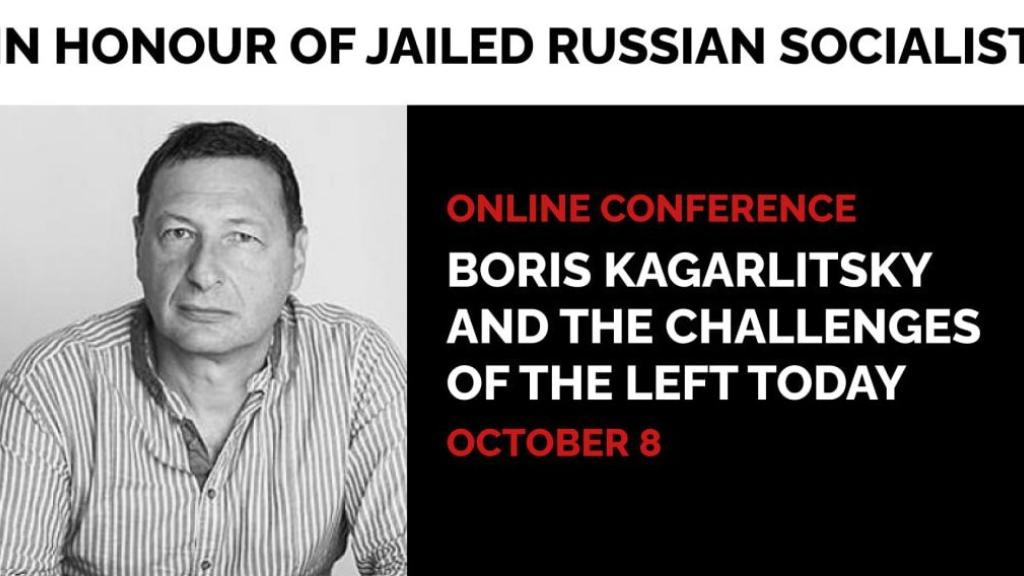
Ever defiant in the face of repression and a five-year jail term, Boris Kagarlitsky, Russia’s best-known socialist thinker, has just published his latest book, The Long Retreat: Strategies to Reverse the Decline of the Left.
In Kagarlitsky’s honour, a special online conference will be held on October 8 to address the double aspect of his invaluable contribution to the left: his wide-ranging analysis of the left’s dilemmas in the face of multiple global crises and the advance of the far right; and his resistance — together with other persecuted anti-war activists in the Russian Federation — to the authoritarianism of the regime of Vladimir Putin.
Speakers include:
- Nancy Fraser American philosopher, critical theorist, feminist, professor of philosophy at the New School in New York City. Fraser is widely known for her critique of identity politics and her work on the concept of justice.
- Patrick Bond Distinguished Professor at the University of Johannesburg Department of Sociology, where he directs the Centre for Social Change.
- Greg Yudin Russian sociologist, expert on public opinion and polls in Russia. Candidate of Philosophical Sciences. Professor at the Moscow Higher School of Social and Economic Sciences.
- Alex Callinicos Rhodesian-born British political theorist and activist. An adherent of Trotskyism, he is a member of the Central Committee of the Socialist Workers Party (SWP) and serves as its International Secretary.
- Hanna Perekhoda Member of solidaritéS in Vaud Canton, Switzerland, and a PhD candidate in Political Science (University of Lausanne).
- Robert Brenner American economic historian. He is a professor emeritus of history and director of the Center for Social Theory and Comparative History at UCLA, editor of the socialist journal Against the Current, and editorial committee member of New Left Review.
- Ilya Matveev Political scientist formerly based in St Petersburg, Russia. Currently a visiting scholar at UC Berkeley.
- Ilya Budraitskis Moscow-based historian and political writer. He is current member of editorial board of Moscow Art Magazine, Openleft.ru and LeftEast.
- Bill Fletcher Jr Former president of TransAfrica Forum; a Senior Scholar with the Institute for Policy Studies; and in the leadership of several other projects.
- Ksenia Kagarlitskaia Daughter of Boris Kagarlitsky, organizer of the international festival in support of political prisoners "Freedom Zone".
- Speaker from Feminist Anti-War Resistance Group of Russian feminists founded in February 2022 to protest against the 2022 Russian invasion of Ukraine.
- Speaker from Memorial Non-profit organization engaged in the study of political repression in the USSR and modern Russia, promoting the moral and legal rehabilitation of persons subjected to political repression.
- Trevor Ngwane South African socialist, anti-apartheid activist, author and teacher at the University of Johannesburg.
- Pavel Kudyukin Co-chair of the University Solidarity Trade Union, a member of the Council of the Confederation of Labour of Russia, and was the Deputy Minister of Labour of Russia (1991-1993)
- Jayati Ghosh Professor of Economics at the University of Massachusetts Amherst (US) since January 2021. Her latest book is The Making of a Catastrophe: The Disastrous Economic Fallout of the Covid-19 Pandemic in India.
Conference program
Note on format: Each session will run for 90 minutes, made up of a 10-minute introduction by the moderator, 20-minute presentations by the speakers and 20 minutes discussion. The main time given is Eastern Daylight Time (US and Canada), while the times in parentheses are, respectively, Central European Time, Indian Standard Time and Australian Eastern Standard Time.
09:15 – 09:30 (15:15 -15:30 CET, 18:45 -19:00 IST, 23:15 - 23:30 AEST)
Introduction: Andrea Levy (Coordinating editor of Canadian Dimension) and Fred Fuentes (editor, Links, International Journal of Socialist Renewal) present the Boris Kagarlitsky International Solidarity Campaign and the aims of the conference.
09:30 – 10:00 (15:30 -16:00 CET, 19:00 -19:30 IST, 23:30 - 00:00 AEST)
Opening address: Nancy Fraser
10:00 – 11:45 (16:00 -17:45 CET, 19:30 - 21:15 IST, 00:00 - 01:45 AEST)
The Long Retreat (presentation and discussion)
Moderator: David Castle (Editorial Director, Pluto Press)
Speakers: Bill Fletcher, Alex Callinicos and Jayati Ghosh
11:45 – 12:00 (17:45 -18:00 CET, 21:15 - 21:30 IST, 01:45 - 02:00 AEST)
Break
12:00 – 13:30 (18:00 -19:30 CET, 21:30 - 23:00 IST, 02:00 - 03:30 AEST)
The situation for the left in Russia today
Moderator: Anna Ochkina (professor of sociology, Penza State University)
Speakers: Greg Yudin, Ilya Budraitskis and a representative of Feminist Anti-War Resistance
13:30 – 13:40 (19:30 -19:40 CET, 23:00 - 23:10 IST, 03:30 - 03:40 AEST)
Presentation of the Daniel Singer Prisoner of Conscious Award
Suzi Weissman and Ksenia Kagarlitskaya
13:40 – 14:30 (19:40 - 20:30 CET, 23:10 - 00:00 IST, 03:40 - 04:30 AEST)
Break
14:30 – 16:00 (20:30 - 22:00 CET, 00:00 - 01:30 IST, 04:30 - 06:00 AEST)
Imperialism(s) today
Moderator: Adam Novak
Speakers: Robert Brenner, Ilya Matveev and Hanna Perekhoda
16:00 – 16:15 (22:00 - 22:15 CET, 01:30 - 01:45 IST, 06:00 - 06:15 AEST)
Break
16:15 – 18:00 (22:15 - 24:00 CET, 01:45 - 03:30 IST, 06:15 - 08:00 AEST)
Repression and the threat to intellectual freedom: Russia and beyond
Moderator: Fiona Dove (Executive Director, Transnational Institute)
Speakers: Pavel Kudyukin, Patrick Bond and Trevor Ngwane
